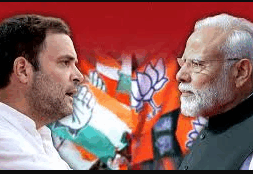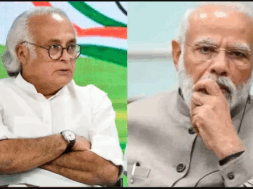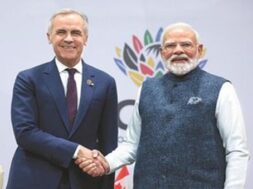
Conflict: The Hamas-Israeli clash may spur inflation, hamper growth, says IMF
Virendra Pandit
New Delhi: Until now, the five-day war between Israel and Sunni terror outfit Hamas is limited to the Jewish state and Gaza Strip, but, if it widens, it may trigger a significant rise in oil prices and hamper growth, the International Monetary Fund (IMF) said on Thursday.
The global lender’s First Deputy Managing Director Gita Gopinath said a 10 percent increase in oil prices results in inflation rise by 0.4 percentage points a year later, the media reported.
If that happens, global output will fall by 0.15 percentage points, adding to an already difficult environment for inflation and growth that is challenging central banks the world over.
But, she said, it was a bit early to know the full implications of this ongoing conflict, and much will depend on whether it spreads to other countries.
“If it turns into a wider conflict, and that causes oil prices to go up, it will impact the economies,” Gopinath said. “That’s usually one of the channels through which we see that affecting global numbers.”
While nations in the restive Middle East might be most directly affected, the impact of higher energy prices can become very widespread, she said.
Over 2,000 people have reportedly been killed since the October 7 outbreak of the worst terrorist attack on Israel in decades. Israeli forces have since been battling to retake captured territory and signs are mounting it’s preparing for a ground invasion of the densely-populated Gaza Strip.
About China, Gopinath said Beijing is in a difficult economic situation and will have to take more steps to address the crisis in its property sector.
“They cut interest rates. I expect that they’ll need to do more. Much more action should be taken in terms of addressing the property sector problem.”
About debt restructuring, she said low-income countries should go through this process in a timely manner. “Our goal is to have a more efficient restructuring process.”
Some countries are placing more trading restrictions on each other. Just last year, some 3,000 new trade restrictions were imposed.
“We really should make sure that this does not end up with all of us just turning inwards completely and a huge return to protectionism.”













